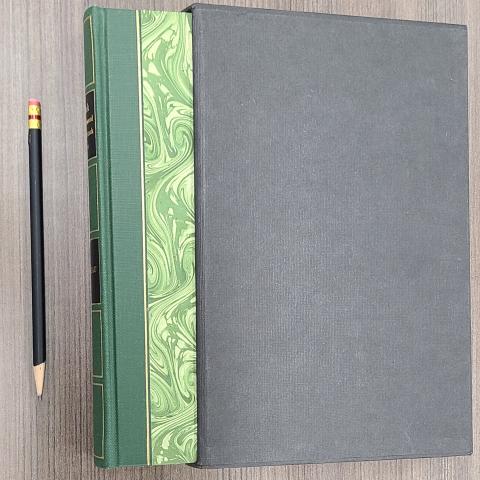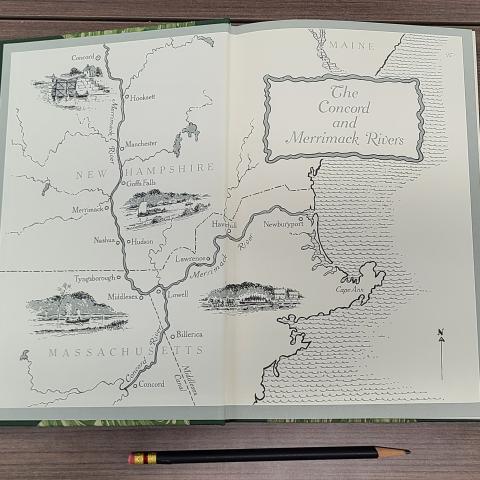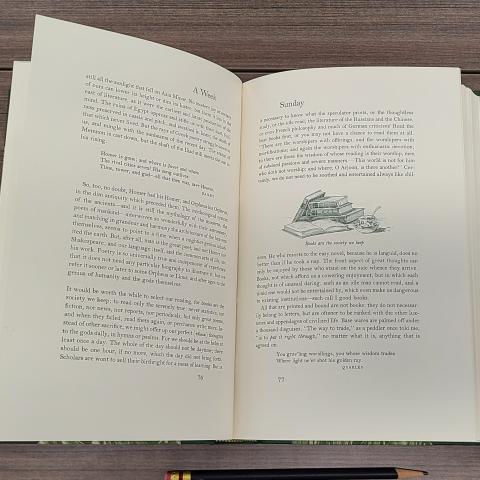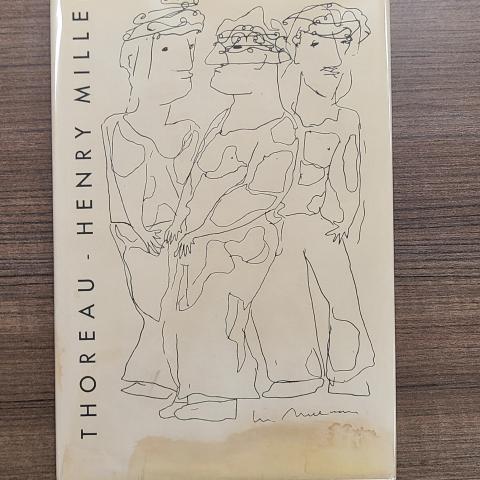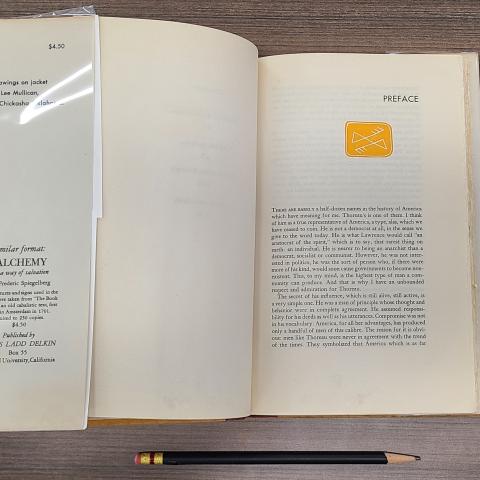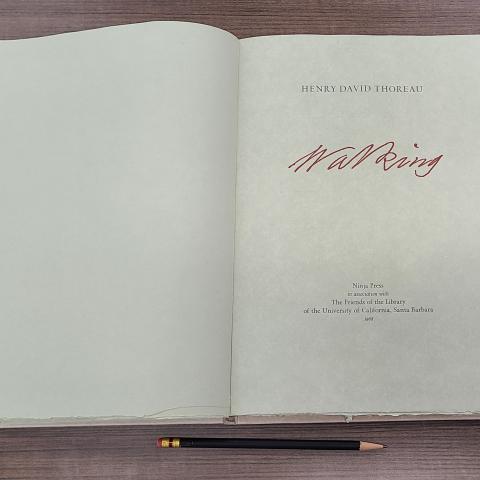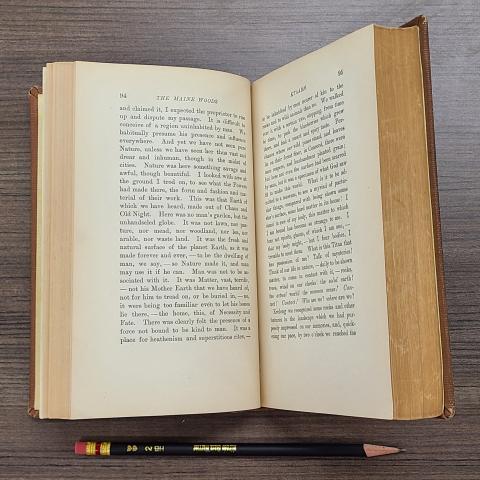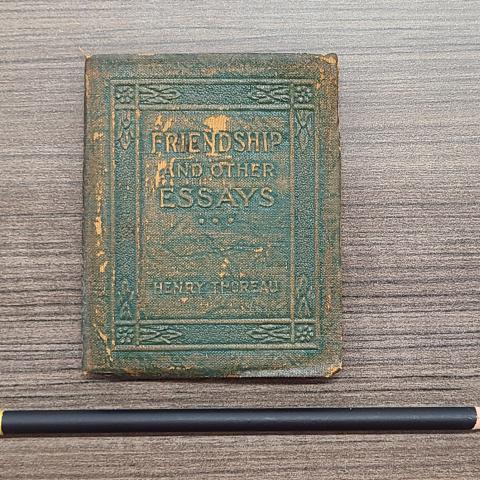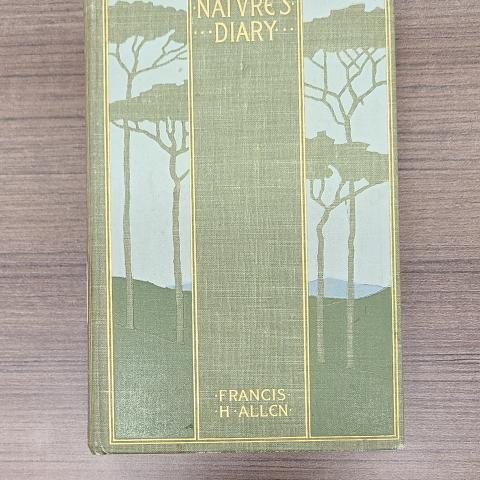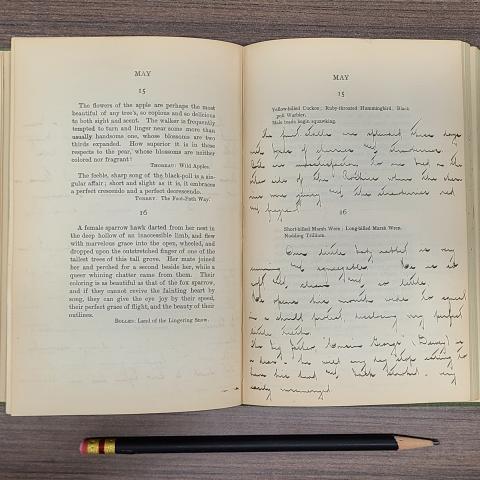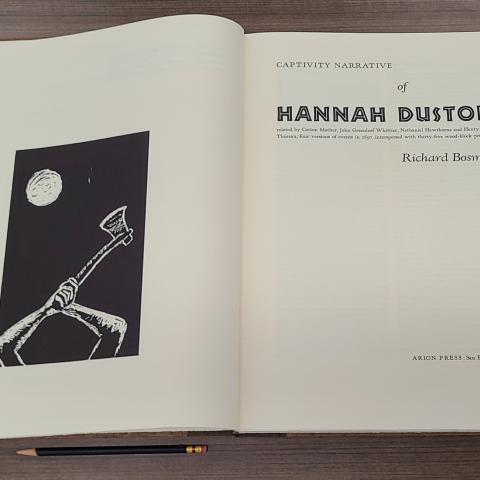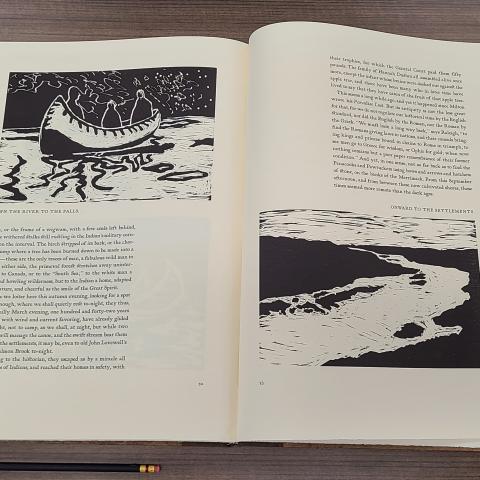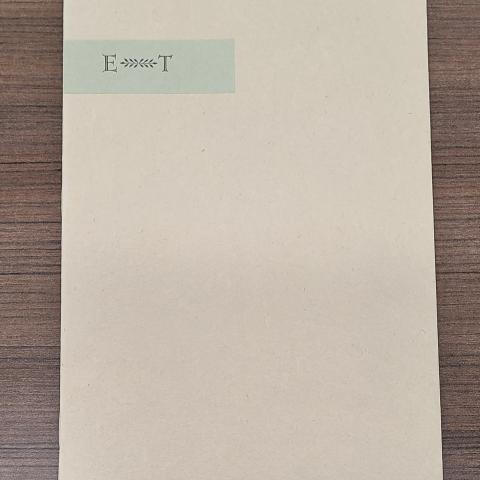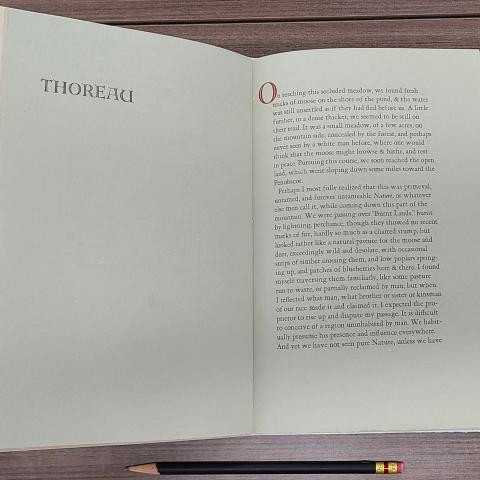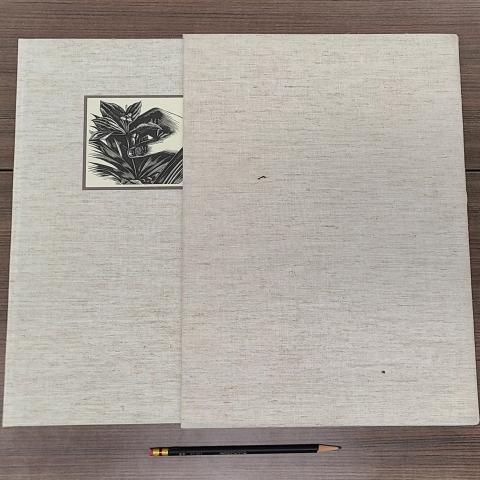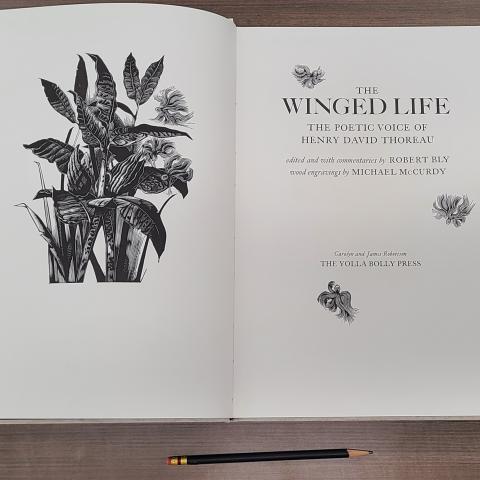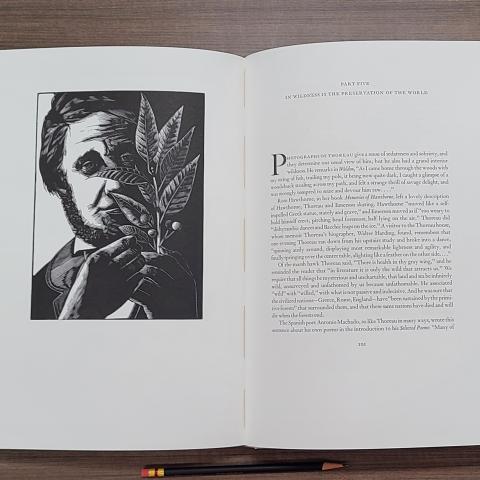Sauntering through Special Collections with Henry David Thoreau
by Philip W. Walsh, Ph.D., Lecturer, Department of Interdisciplinary Studies and Liberal Studies - September 10, 2024
Henry David Thoreau (1817-1862) was an American author whose works explore the relationship of the individual to nature and to society. Walden, his account of a two year stay at Walden Pond, is one of the founding documents of the United States’ cultural independence from England. He also published essays—many of them first delivered as lectures—on the role of the ethical individual in an unjust society, and kept journals recording the wildlife he observed during his lifetime. His philosophy might be best expressed in his declaration that "in Wildness is the preservation of the World;" his writings still shape our ideas about individual liberty and our perceptions of wilderness today.
A Week on the Concord and Merrimack Rivers (published 1849), is an account of a journey by boat which Thoreau and his brother John took ten years earlier. Thoreau blends his contributions to the Transcendentalist tradition into the narrative, which is also a memorial to his brother John, who died of tetanus three years after the trip. This book, published by the Limited Editions Club in 1975, is signed by the designer and illustrator.
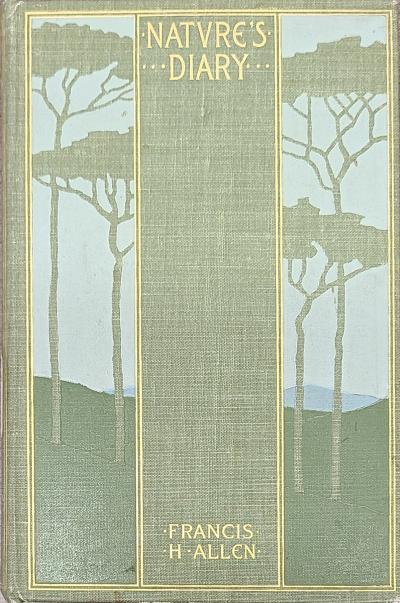 Life without Principle: Three Essays contains Thoreau’s "Civil Disobedience" (published 1849), his justification for refusing to pay certain taxes, on the grounds that he did not want to support the United States’ unprovoked 1846 invasion of Mexico. "That government is best which governs least," he wrote here, and the essay explores the right of the individual to refuse compliance with an unjust law. His essay "Life without Principle," first presented as a lecture in 1854, and published a year after his death, revisits the idea, first explored in Walden, that the goal of an individual’s life should not be financial wealth or other material gain, but rather an awareness of the spiritual rewards of the natural world. Weary of telling his audiences only what they want to hear, this essay leaves out "all the flattery" and retains "all the criticism" of the earlier work. This collection also includes the essay "John Brown’s Body," (1859), Thoreau’s defense of the abolitionist; he portrays Brown as a visionary who wanted to shock America into awareness of the horrors of slavery. Three Essays features a preface by Henry Miller, and was designed and published by James Ladd Delkin, a printer who specialized in books on California.
Life without Principle: Three Essays contains Thoreau’s "Civil Disobedience" (published 1849), his justification for refusing to pay certain taxes, on the grounds that he did not want to support the United States’ unprovoked 1846 invasion of Mexico. "That government is best which governs least," he wrote here, and the essay explores the right of the individual to refuse compliance with an unjust law. His essay "Life without Principle," first presented as a lecture in 1854, and published a year after his death, revisits the idea, first explored in Walden, that the goal of an individual’s life should not be financial wealth or other material gain, but rather an awareness of the spiritual rewards of the natural world. Weary of telling his audiences only what they want to hear, this essay leaves out "all the flattery" and retains "all the criticism" of the earlier work. This collection also includes the essay "John Brown’s Body," (1859), Thoreau’s defense of the abolitionist; he portrays Brown as a visionary who wanted to shock America into awareness of the horrors of slavery. Three Essays features a preface by Henry Miller, and was designed and published by James Ladd Delkin, a printer who specialized in books on California.
In Walking, first delivered as a lecture in 1851, and published after his death, Thoreau declares that that he cannot preserve his health and spirits, unless he spends a good part of his day "sauntering through the woods and over the hills and fields;" he cannot understand how others are able to spend their lives in offices and shops. This edition, printed on paper from Barcham Green Hayle Mill in England, comes from Ninja Press, which produces its books by letterpress. The titling was taken from the printers’ copy manuscript of the original text written in Thoreau’s hand.
The Maine Woods (published 1864) builds on earlier themes in his work by exploring a wilder aspect of the natural world. It recounts three journeys Thoreau took with friends, in an effort to avoid becoming too comfortable in the Concord woods. The best known episode in this work portrays his ascent of Mount Ktaadn as an experience of the Romantic sublime, complementing his pastoral sojourn at Walden Pond. "This was that Earth," he wrote, "of which we have heard, made out of Chaos and Old Night…Man was not to be associated with it."
Special Collections & Archives also has a Little Leather book which gathers several of Thoreau’s essays, and Nature’s Diary by Francis H. Allen, which features quotes by several nature writers, including Thoreau, alongside Allen’s own journal entries. Captivity Narrative of Hannah Duston by Arion Press, with woodblock prints by Richard Bosman, compiles four versions of Duston’s story. Spirit & Matter, also by Ninja Press, features excerpts from Emerson’s Nature and Thoreau’s The Maine Woods. The Winged Life features a selection of poet Robert Bly’s favorite works by Thoreau; this book was designed by Carolyn and James Robertson, of Yolla Bolly Press, which specialized in handcrafted limited editions. It is printed on Arches 88, a French paper, and features Michael McCurdy’s wood engravings of Thoreau and the landscapes he inhabited.
Image Gallery
Post tagged as: united states, special collections, publications
Read more Peek in the Stacks blog entries